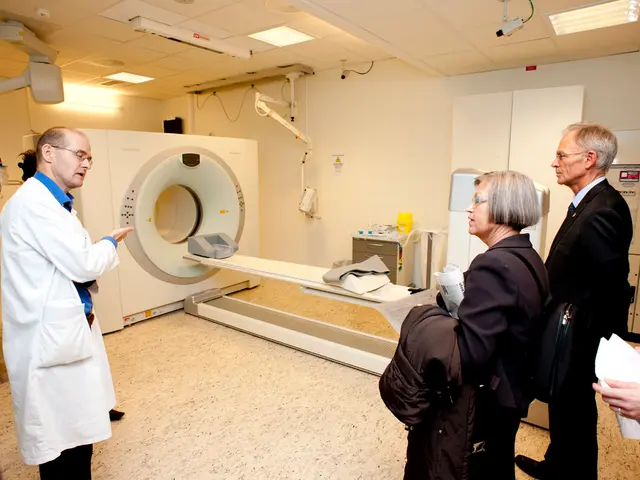Debate on Organ Donation: Advantages and Disadvantages of Opt-in and Opt-out Approaches
Getting to the Core: Organ Donation Systems: Opt-in vs. Opt-out
Situated across the globe, organ donation regulations demonstrate a significant range of approaches. But what's the ideal system: opt-in or opt-out? To uncover the answers, a British research team investigated the donation protocols of 48 countries, digging into the merits of both methods.
In an opt-in system, people need to affirmatively enlist in a registry to donate their organs post-mortem. Conversely, opt-out systems enable organ donation by default, with specific requests needed to oppose the practice before death.
Prof. Eamonn Ferguson, principal investigator from the University of Nottingham, acknowledges that these systems' reliance on individuals' active decisions could lead to disadvantages:
"People may hold back due to various reasons such as loss aversion, lack of effort, or trusting in policymakers' decisions."
However, inaction in an opt-in system might lead to unintentional non-donations by individuals who'd be willing donors (false negatives). On the other hand, inaction in an opt-out system might potentially result in an individual who does not want to donate becoming a donor (false positive).
The United States opted for an opt-in system. Data from the U.S. Department of Health & Human Services indicates that 28,000 transplants were possible last year due to organ donors. Daily, approximately 79 people receive organ transplants, and unfortunately, 18 people die every day due to a scarcity of donated organs.
Making a Choice: in or out?
Researchers from the University of Nottingham, University of Stirling, and Northumbria University examined the organ donation practices of 48 countries over a 13-year span – 23 using an opt-in system, and 25 implementing an opt-out approach.
They measured overall donor numbers, organ transplant numbers per organ, and the total number of kidneys and livers transplanted from both deceased and living donors. Their findings highlight some intriguing distinctions:
- Countries with opt-out systems exhibited a higher overall number of kidneys donated – an organ that the majority of organ transplant recipients are waiting for.
- Opt-out systems also boasted higher overall organ transplant numbers.
Opt-in systems, however, showcased a higher rate of kidney donations from living donors. The influence of policy on living donation rates is an unprecedented discovery, says Prof. Ferguson:
"This subtlety needs to be emphasized carefully."
The researchers acknowledge their study's limitations, as it did not differentiate among various opt-out legislation degrees and failed to account for other factors that may impact organ donation.
Moving Forward
The researchers have published their results in BMC Medicine, revealing that "opt-out consent might lead to an increase in deceased donations but a reduction in living donation rates. Opt-out consent is also associated with an increase in the total number of livers and kidneys transplanted."
They recommend that these insights could guide future policy decisions, but recommend increased collection and public availability of international organ donation data like consent type, procurement procedures, and hospital bed availability for stronger results.
Moving forward, Prof. Ferguson suggests further studies investigating individuals' perspectives on opting in or out:
"Future research should aim at examining issues from the individual's standpoint, focusing on beliefs, desires, and opinions, employing a mix of survey and experimental methods."
The authors note that opt-out consent countries still struggle with donor shortages. A simple policy transformation is, therefore, unlikely to resolve such problems. They propose that either consent legislation or adopting elements of the "Spanish Model" could be ways to enhance donation rates.
Spain currently boasts the highest organ donation rate in the world. Experts attribute Spain's success to measures like a nationwide transplant coordination network and improved public information about organ donation.
Recently, Medical News Today featured a spotlight on animal organ farming for human transplants. Could this be a solution for the organ shortage, or is this an issue to be addressed through changes to organ donation policy?
Authored by James McIntosh
- The British research team investigating organ donation protocols of 48 countries found that opt-out systems led to a higher overall number of kidneys donated, an organ in high demand by transplant recipients.
- In opt-out systems, the overall number of organ transplants was also higher than in opt-in systems.
- Opt-in systems, however, showed a higher rate of kidney donations from living donors, a discovery pointing towards the influence of policy on living donation rates.
- Prof. Ferguson, the study's principal investigator, emphasized the need to carefully consider this finding, as it suggests that opt-out consent might lead to a decrease in living donation rates.
- The researchers acknowledges the limitations of their study, such as not differentiating among various opt-out legislation degrees and failing to account for other factors that may impact organ donation.
- They recommend increased collection and public availability of international organ donation data for stronger results.
- Looking ahead, Prof. Ferguson suggests further studies focusing on individuals' perspectives on opting in or out to better understand their beliefs, desires, and opinions.
- Meanwhile, the question remains: Could animal organ farming for human transplants provide a solution for the organ shortage, or should the issue be addressed through changes to organ donation policy?







